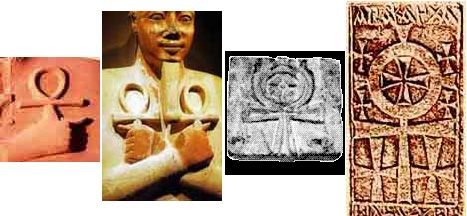A couple of things:
1) Contrary to what has been previously stated, the
Liddel-Scott-Jones Greek Lexicon does indeed distinguish between
phusikos and
psuchikos. Not only this, but it also provides a wealth of related information concerning the terminology, including: the frequency of the query in classical poetry and prose (respectively), a list of words with similar definitions to the query, a list of words that regularly appear with the query in both poetry and prose (respectively), and direct citations to serve as examples for
each definition accompanying the query.
2) Also, in case anyone is interested, the aforementioned lexicon is based on the text:
Henry George Liddell. Robert Scott.
A Greek-English Lexicon. revised and augmented throughout by. Sir Henry Stuart Jones. with the assistance of. Roderick McKenzie. Oxford. Clarendon Press. 1940.
ISBN: 0198642261
3) The idea that the same word can have conflicting meanings, depending on both the context and the source, is hardly a 'contradiction'. I'm quite frankly surprised anyone with such an obvious degree of intelligence would make such a boldly naive assertion, to tell you the truth. In any event, the authors cite numerous examples of each usage of the words along with the accompanying definition, so it becomes something of a non-argument, anyway.
4) The primary definition of the word
psuchikos is an adjective form for
psuche. According to the 1978 Oxford Dictionary I have in my living room, this is also the primary definition for
psychic ('[...] of, relating to, or pertaining to the
psyche and its functioning'). As such, the English
psychic does indeed become a direct transliteration of the Greek
psuchikos (just as
psyche is a direct transliteration of
psuche).
By contrast, the definition of
psuchikos as "of the animal life, animal" is a secondary definition.
5) Just because the lexicon I used claims the secondary definition is used in the second chapter of
1 Corinthians does not necessarily make it so. I was merely citing the lexicon as demonstrating there are multiple interpretations and definitions of the word
psuchikos, which I think has been adequately demonstrated at this point. As to whether any given usage has a particular meaning in mind, this is solely dependent on the context in which the word is used. I will address the context of
1 Corinthians 2 in my next point.
6) If you read the entirety of the second chapter of
1 Corinthians, you will find that the secondary definition of
psuchikos (which 7starmantis has previously asserted was the
only definition of the word) -- 'of the animal life, animal' -- makes little sense in light of the context the author is writing within.
The author begins by proclaiming that, when he first came to the Corinthians, he desired that they 'know nothing' other than the gospel of 'Christ crucified'. He then states his teaching does not rest on 'eloquent words' or the 'wisdom (
sophia) of men', but on God's word. But, curiously, the author then goes on to mention that there
is a 'wisdom' (
sophia) spoken among the 'initiated' or 'completed' or 'fulfilled' (
teleos).
In other words, he references a deeper understanding that only those fully completed or initiated into the teachings can possess. This is not only evocative of mystery school symbolism, but it also belies any definition of
psuchikos in this context as referring to 'sensous' or 'carnal' truths.
Psuchikos, in this context, seems to refer to individuals that not yet fully 'initiated' or 'completed' within Christ.
If you don't believe me, open up a Bible and read through the second chapter of
1 Corinthians yourself. At no point does the author even allude to hedonistic or carnalistic desires. Instead, he distinguishes between the doctrine of 'Christ crucified' which he first taught to his audience as compared to the 'wisdom of the initiated' that he was reserving for the Corinthians when they were 'mature' or 'perfected' or 'fulfilled' (
teleos) enough to receive.
This is very, very telling.
7) This, of course, also demonstrates a trend that Freke & Gandy bring up in their books about Christianity. Namely, that much of the New Testament (particularly the Pauline epistles) is translated in such a way so as to conceal their relationship to both the Hellenistic mystery schools and to Christian Gnosticism. It is less of a translation and more of an interpretation. An interpretation, mind you, that is intentionally worded to confirm the existing belief structure within mainstream Christian doctrine. Pure self-confirmation.
8) In the works of Plato, Philo Judaeus, Plotinus, and the
Corpus Hermeticum, the words
pneuma and
nous are used in precisely the way that Freke & Gandy suggested.
I'll try to get to the rest a little bit later on tonight.
Laterz.




